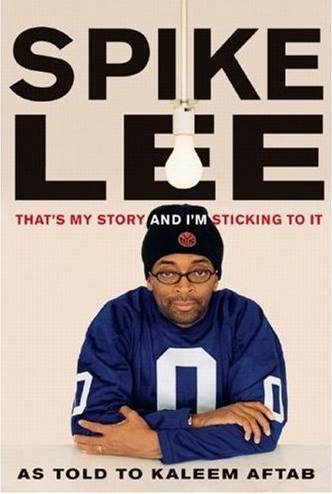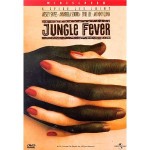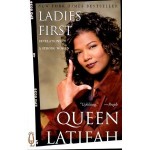 By Jae-Ha Kim
By Jae-Ha Kim
Chicago Sun-Times
July 23, 2003
Shelton Lee always had a bit of an edge. When his schoolteacher mother began calling him Spike, even he realized the nickname fit him to a T.
“I was always a little different,” Lee says, laughing. “I don’t think I knew it as a kid, but it wasn’t a bad thing. I grew up in a wonderful environment filled with love, knowledge and lots of jazz.”
His father is the jazz musician Bill Lee, who scored all of Lee’s films until he started collaborating with Terence Blanchard 12 years ago. Their first project together was the critically acclaimed “Jungle Fever.”
Like Lee’s dad, Blanchard almost intuitively understands what Lee is trying to get across in his films without being told, the director says.
“We work together,” says Lee, 46. “It’s not like I write the film and then tell Terence to write some good music to accompany it. That’s not how we do it. Music is such a lyrical, important component of filmmaking that I tell Terence about my story ideas as soon as I have an idea. He sees an early draft of the script and the dailies when we’re shooting. He’s involved in everything from the beginning.
“I do know there are some directors who bring composers in at the very last minute and that works very well for them. But that’s not our style.”
Phoning from Los Angeles, where he’s filming a two-hour Showtime pilot called “Sucker Free City”–about San Francisco’s Chinese and African-American gangs–Lee says he’s excited about returning to Symphony Center in Chicago Saturday for his multimedia show “The Movie Music of Spike Lee and Terence Blanchard.”
The production will feature guest vocalists Gerald Levert, Mavis Staples and Bilal. As snippets of Lee’s films are shown, the music from movies such as “Do the Right Thing,” “Malcolm X” and “Mo’ Better Blues” will be re-created by the singers and a five-man band led by Blanchard.
“I’ve always felt that Terence’s scores and my films hold up on their own as their own entities,” Lee says. “It just seemed like this was a nice time to put together this concert. It’s something different from what people are used to and I like that.”
Lee’s onstage appearance during this tour is minimal. He begins the show with a verbal exchange with Blanchard about how they make films. Lee returns two hours later to take his bow.
“I don’t think anyone needs to see or hear me longer than that,” he says. “I know Chicago wouldn’t want that, ’cause I might have to pick on the Bulls.”
Even as he talks euphorically about Chicago’s architectural beauty, Lee can’t resist getting in that dig.
“I love Chicago, but we’ve had our differences between the Knicks and the Bulls,” says Lee, who’s almost as famous for his obsession with the New York basketball team as he is his films. “I like that your city still roots for the Bulls even though they stink now. But hey, you’ve got to root for your team. That’s only right.”
At 5-foot-5, Lee was never a contender on the basketball court. And though he has a great ear for music, he admits he’s incapable of translating what he hears into reality without the help of someone like Blanchard.
“Having been brought up in a jazz household, I understand certain elements of music, which I think is helpful when working with any musician,” Lee says. “I wish I had the talent to do what Terence [or my father] does. They make it seem too easy. But it’s the team you’ve built around you that makes the film successful.”
Born and reared in Atlanta, Lee graduated from Morehouse College before continuing his studies at New York University, where Lee is a master teacher of film. He also lectures at Harvard.
You’d think such a smart man wouldn’t utter ill-advised things, but he has occasionally gotten into hot water over his comments. After the Colombine rampage, he suggested that National Rifle Association president Charlton Heston should be shot. Though Lee later apologized, he suffered the wrath of the still-feisty actor, who challenged Lee to carry out his threat.
Lee also recently settled his lawsuit with Viacom, which had wanted to change its TNN cable network name to Spike TV. Lee wanted no affiliation with the men-centric network.
“I can’t talk about the lawsuit, but I try to let people know that I have no affiliation with that channel at all–None!” he says.
Ironically, Viacom owns Showtime, the channel for which he’s shooting his latest project.
“What can I say,” he says, laughing. “It’s a weird business I work in.”
How the right composer can make a movie sing
Spike Lee and Terence Blanchard have made beautiful music together for the past dozen years. They’re not alone. More directors are teaming with the same composers to create sounds that are as recognizable as their filmmaking styles.
We talked to a couple of composers who shared their thoughts on why the end project is better when they work with someone familiar.
John Ottman
(X-Men 2, Apt Pupil, The Usual Suspects)
“Bryan Singer and I met when we were going to the [University of Southern California Film School]. It’s definitely easier working with someone you already have a relationship with because you already have the trust there.There’s a shorthand that exists.
“He can bat his eyelid or look at me sternly and I’ll know what he means because he probably gave me that same look when something similar happened a couple of films ago.
“There’s also the added comfort of being able to make suggestions to each other without worrying that you may have offended the director. I can walk onto the set and make suggestions and he won’t tell me to go to hell. He’ll take what I say into consideration because of our friendship and history.”
Don Davis
(The Matrix trilogy, Bound)
“Working with the Wachowski brothers has been an amazing experience. I knew on ‘Bound’ that they were two astonishingly talented guys who were redefining the nature of what a writer-director was. With this third ‘Matrix’ film I’m working on now, the score that’s accompanying the dialogue is almost operatic.
“The brothers aren’t musicians and don’t listen to classical music the way I do. But it’s astonishing how attuned they are to the function of music in pictures. They have a very intuitive, visceral feeling and they’re very demanding on everyone, including themselves.
“When they got the deal to do the Matrix films, I don’t think any of us really expected them to get the same team from ‘Bound.’ But they pretty much did. It’s not easy dealing with some of the challenges these films present, but having worked with the brothers for so many years makes this project a little less intimidating to work on.”





